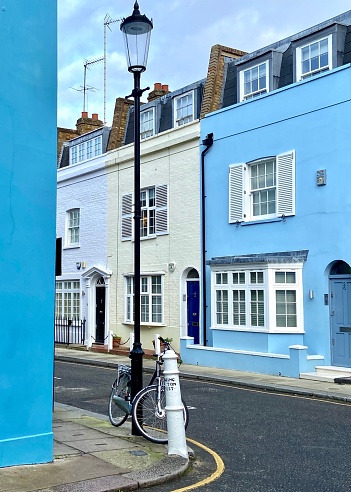Think carefully before securing other debts against your home. Your home may be repossessed if you do not keep up repayments on your mortgage. Some buy–to–let mortgages are not regulated by the Financial Conduct Authority. Tax planning is not regulated by the Financial Conduct Authority. Tax treatment varies according to individual circumstances and is subject to change.

Mortgage and protection advice.
Buy-to-let mortgages are for landlords who buy property with the purpose of renting it out. Buy-to-let mortgages work in a similar way to ordinary mortgages, but the minimum deposit is usually 25% of the property’s value (although we sometimes find mortgage products requiring a 20% deposit).
The lending criteria for buy-to-let mortgages are different to a standard mortgage. Lenders will want to make sure you can afford to repay the mortgage should the property be empty or between tenancies. Our specialist advisers can find the right mortgage to suit your circumstances, but it is important to plan for when you may not have a tenant or when rent isn’t paid on time.
The maximum you can borrow will be linked to the rental income you expect to receive. Lenders typically need rental income to be one-quarter to one-third higher than your monthly mortgage payments.
Most buy-to-let mortgages are interest-only. This means your monthly payments to the lender only cover the interest on the loan, and you don’t reduce the lump sum borrowed each month. Instead, at the end of the mortgage term you must repay the amount borrowed (capital) in full.

We’d love to hear from you.
If you sell your buy-to-let property for a profit, you must pay Capital Gains Tax (CGT) if your gain exceeds the annual CGT threshold. Also, rental income that exceeds your mortgage interest payments and certain allowable expenses are liable for Income Tax. Our advisers can explain the tax implications of buying and selling property as a landlord.
We’d love to hear from you.
Your mortgage journey is our priority.
Mortgage Options is a trading style of Mortgage Options (Partnership Division) Ltd who are an appointed representative of Quilter Mortgage Planning Limited, which is authorised and regulated by the Financial Conduct Authority. Quilter Mortgage Planning Limited are entered on the FCA register (https://register.fca.org.uk/s) under reference 440718.
The guidance and/or information contained within this website is subject to the UK regulatory regime and is therefore targeted at consumers based in the UK.
Registered office: 4 Finkin Street, Grantham, Lincolnshire NG31 6QZ. Registered in England and Wales, Company Number 7352047.
Approver Quilter Financial Services Limited and Quilter Mortgage Planning Limited July 2025
Powered by Content Streams
Neither Mortgage Options Nor Quilter Financial Planning are responsible for the accuracy of the information contained within the linked site.
Neither Mortgage Options Nor Quilter Financial Planning are responsible for the accuracy of the information contained within the linked site.
Neither Mortgage Options Nor Quilter Financial Planning are responsible for the accuracy of the information contained within the linked site.
Neither Mortgage Options Nor Quilter Financial Planning are responsible for the accuracy of the information contained within the linked site.
Neither Mortgage Options Nor Quilter Financial Planning are responsible for the accuracy of the information contained within the linked site.
Neither Mortgage Options Nor Quilter Financial Planning are responsible for the accuracy of the information contained within the linked site.